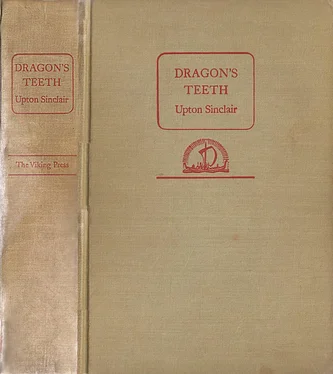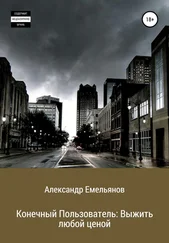Пользователь - o 3b3e7475144cf77c
Здесь есть возможность читать онлайн «Пользователь - o 3b3e7475144cf77c» весь текст электронной книги совершенно бесплатно (целиком полную версию без сокращений). В некоторых случаях можно слушать аудио, скачать через торрент в формате fb2 и присутствует краткое содержание. Жанр: Старинная литература, на русском языке. Описание произведения, (предисловие) а так же отзывы посетителей доступны на портале библиотеки ЛибКат.
- Название:o 3b3e7475144cf77c
- Автор:
- Жанр:
- Год:неизвестен
- ISBN:нет данных
- Рейтинг книги:4 / 5. Голосов: 1
-
Избранное:Добавить в избранное
- Отзывы:
-
Ваша оценка:
- 80
- 1
- 2
- 3
- 4
- 5
o 3b3e7475144cf77c: краткое содержание, описание и аннотация
Предлагаем к чтению аннотацию, описание, краткое содержание или предисловие (зависит от того, что написал сам автор книги «o 3b3e7475144cf77c»). Если вы не нашли необходимую информацию о книге — напишите в комментариях, мы постараемся отыскать её.
o 3b3e7475144cf77c — читать онлайн бесплатно полную книгу (весь текст) целиком
Ниже представлен текст книги, разбитый по страницам. Система сохранения места последней прочитанной страницы, позволяет с удобством читать онлайн бесплатно книгу «o 3b3e7475144cf77c», без необходимости каждый раз заново искать на чём Вы остановились. Поставьте закладку, и сможете в любой момент перейти на страницу, на которой закончили чтение.
Интервал:
Закладка:
couldn't fail to be impressed, and many wavered and wondered if maybe the Russian way
might be the only way. Anyhow, they had a right to be heard; Lanny did what he could to
persuade both sides to stop quarreling, and he set them an example by refusing to let them
quarrel with him.
II
Any time he was in doubt about what was really happening in Germany he had only to write
to Johannes Robin. A letter from the Jewish money-master was like a gust of wind blowing
away a fog and revealing the landscape. It disclosed the German nation traveling upon a
perilous path, with yawning abysses on every side, earthquakes shaking the rocks loose and
volcanoes hurling out clouds of fiery ashes. Assuredly neither of the Plinys, uncle or nephew,
had confronted more terrifying natural phenomena than did the Weimar Republic at the
beginning of this year 1933.
The ceaselessly aggressive Nazis were waging daily and nightly battles with the Communists
all over the country. And meantime the two ruling groups, the industrialists of the west and
the landlords of the east, were concentrating their attention upon getting higher tariffs to
protect their interests; one hundred per cent wasn't enough in these days of failing markets.
The workers, who wanted lower prices for goods and for food, had refused time after time to
vote for candidates of these groups; but with less than five per cent of the votes, the
reactionary politicians still clung to power, playing one faction against another, using
cajolements mixed with threats.
Chancellor von Schleicher had begun wooing the labor unions, calling himself the "social
general," and pointing out to the moderates among Socialists and Catholics how much worse
things would be if either set of extremists came in. By such blandishments he lost favor with the
paymasters of the Ruhr, who wanted the labor unions broken and were listening to the siren
song of Hitler, promising this service. Also there was the problem of Osthilfe, a scandal
hanging over the heads of the landed aristocrats of East Prussia. Huge public funds had been
voted to save the farmers from ruin, but the owners of the big estates, the powerful aristocrats,
had managed to get most of the money, and they had used it for other purposes than land
improvements. Now hardly a day passed that the Socialist and Communist press didn't print
charges and demand investigations.
Papen and Schleicher still pretended to be friends, while scheming to cut each other's
throats. Schleicher had ousted Papen by a deal with the Nazis, and two could play at that game.
Papen, the "gentleman jockey," was the most tireless of wirepullers. A pale blond aristocrat
with a thin, lined face wearing a perpetual smile, he went from one secret meeting to another
telling a different story to everybody—but all of them carefully calculated to injure his rival.
"Papen has had a meeting with Hitler at the home of Thyssen's friend, Baron von Schroeder,"
wrote Johannes, and Lanny didn't need to ask what that meant. "I am told that Papen and
Hugenberg have got together;"—that, too, was not obscure. Hugenberg, the "silver fox," had
come to one of the Robin soirees; a big man with a walrus mustache, brutal but clever; leader
of the Pan-German group and owner of the most powerful propaganda machine in the world,
practically all of the big capitalist newspapers of Germany, plus U.F.A., the film monopoly.
"Papen is raising funds for Hitler among the industrialists," wrote Johannes. "I hear that the
Führer has more than two million marks in notes which he cannot meet. It is a question
whether he will go crazy before he becomes chancellor!"
III
The Nazis held one of their tremendous meetings in the Sportpalast, and Hitler delivered one
of his inspired tirades, promising peace, order, and restoration of self respect to the German
people. The conservative newspapers in Paris published his promises and half believed them;
they were far more afraid of the Reds than of the Nazis, and Lanny found that Denis de
Bruyne was inclined to look upon Hitler as a model for French politicians. Even Lanny himself
began hesitating; he was so anxious to be sure that he was right. Hitler was calling upon
Almighty God to give him courage and strength to save the German people and right the
wrongs of Versailles. Lanny, who had protested so energetically against those wrongs, now
wondered if it mightn't be possible for Hitler to scare France and Britain into making the
necessary concessions, and then to settle down and govern the country in the interest of those
millions of oppressed "little people" for whom he spoke so eloquently.
The son of Robbie Budd and husband of Irma Barnes might waver, but the German workers
didn't. A hundred thousand of them met in the Berlin Lustgarten, clamoring for the defense
of the Republic against its traitor enemies. "Something is going to pop," wrote Johannes,
American fashion. "Der alte Herr is terrified at the prospect of having the Osthilfe affair
discussed in the Reichstag. Schleicher is considering with the labor unions the idea of refusing
to resign and holding on with their backing. I am told that the Catholics have assented, but the
Socialists are afraid it wouldn't be legal. What do you think?" Lanny knew that his old friend
was teasing him, and didn't offer any opinion on German constitutional law.
Johannes didn't say what he himself was doing in this crisis, but Lanny guessed that he was
following his program of keeping friendly with all sides. Certainly he possessed an extraordinary
knowledge of the intrigues. Now and then Lanny would call him on the long distance
telephone, a plaything of the very rich, and Johannes would speak a sort of camouflage. He
would say: "My friend Franzchen wants to be top dog, but so does his friend the publisher, and
their schemes will probably fall through because they can't agree." Lanny understood that this
meant Papen and Hugenberg; and when Johannes added: "They may harness up the Wild
Man and get together to drive him," Lanny had no trouble guessing about that. Presently
Johannes said: "They are telling the Old Gent that the General is plotting a coup d'etat against
him." It was like reading a blood and thunder novel in instalments, and having to wait for the
next issue. Would the rescue party arrive in time?
IV
On the thirtieth of January the news went out to a startled world that President von
Hindenburg had appointed Adolf Hitler Chancellor of the German Republic. Even the Nazis
were taken by surprise; they hadn't been invited to the intrigues, and couldn't imagine by what
magic it had been brought about that their Führer's enemies suddenly put him into office. Franz
von Papen was Vice-Chancellor, and Hugenberg was in the Cabinet; in all there were nine
reactionaries against three Nazis, and what could that mean? The newspapers outside
Germany were certain that it meant the surrender of Hitler; he was going to be controlled,
he was going to be another Ramsay MacDonald. They chose not to heed the proclamation
which the Führer himself issued, telling his followers that the struggle was only beginning. But
the Stormtroopers heeded, and turned out, exultant, parading with torchlights through Unter
den Linden; seven hundred thousand persons marched past the Chancellery, with Hindenburg
greeting them from one window and Hitler from another. The Communist call for a general
strike went unheeded.
So it had come: the thing which Lanny had been fearing for the past three or four years. The
Читать дальшеИнтервал:
Закладка:
Похожие книги на «o 3b3e7475144cf77c»
Представляем Вашему вниманию похожие книги на «o 3b3e7475144cf77c» списком для выбора. Мы отобрали схожую по названию и смыслу литературу в надежде предоставить читателям больше вариантов отыскать новые, интересные, ещё непрочитанные произведения.
Обсуждение, отзывы о книге «o 3b3e7475144cf77c» и просто собственные мнения читателей. Оставьте ваши комментарии, напишите, что Вы думаете о произведении, его смысле или главных героях. Укажите что конкретно понравилось, а что нет, и почему Вы так считаете.




